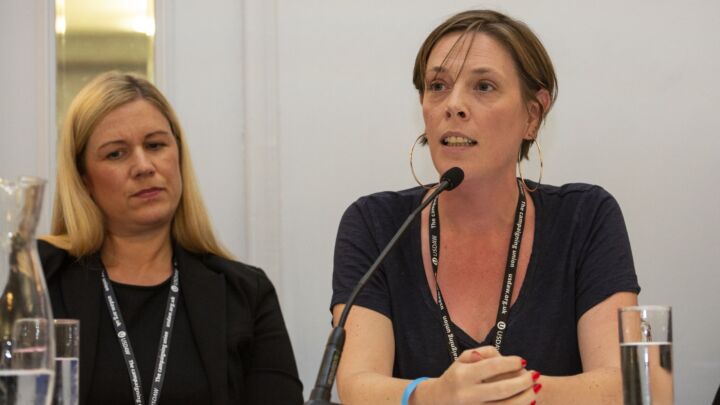Tim Hunt: how public shaming harms academia

Want unlimited, ad-free access? Become a spiked supporter.
Sir Tim Hunt, a Nobel Prize-winning scientist and Royal Society fellow, has today resigned his professorial post at University College London’s faculty of life sciences. His resignation follows comments he made earlier this week, at a conference in South Korea, about ‘girls’ in science labs: ‘Let me tell you about my trouble with girls… three things happen when they are in the lab… You fall in love with them, they fall in love with you and when you criticise them, they cry.’
Both UCL and the Royal Society immediately sought to distance themselves from Hunt’s remarks, which he has since suggested were intended to be lighthearted. Hunt has since issued an apology: ‘I’m really, really sorry I caused any offence, that’s awful. I certainly didn’t mean that. I just meant to be honest, actually.’ But this has not been enough to prevent a wave of media interest in, and public criticism of, Hunt. Female scientists have taken to Twitter to post pictures of themselves in their labs under the banner #DistractinglySexy. The Guardian is asking women to share their stories of sexism in science.
Hunt’s comments are as silly as they are outdated; his Nobel Prize clearly wasn’t awarded for political correctness. But this is precisely the point. Hunt is a scientist; his talents lie in biochemistry, particularly in cells and proteins, and not diplomacy. Due to the public humiliation of this 72-year-old man, British academia has now lost a talented scientist. The members of Hunt’s lab will no longer have access to his experience and knowledge. The work he had been pursuing will presumably now be abandoned.
Hunt’s remarks are being taken seriously because science is considered by many in higher education to have a gender problem. Despite campaigns stretching back over many decades, only 16 per cent of professors in science, engineering and technology subjects are female. David Colquhoun, emeritus professor of pharmacology at University College London, said Hunt’s comments were a ‘disaster for the advancement of women’. But are women scientists really so fragile that they’ll be discouraged by a flippant comment made on the other side of the world? The assumption that they will give up, or never get going in the first place, because of a throwaway sexist sentence just repeats the ‘crying over criticism’ point Hunt is being slammed for making – albeit in an apparently more caring form.
Hunt’s resignation reminds us that, in today’s universities, expressing the supposedly correct view on a matter is far more important than any contribution to knowledge an idiosyncratic individual might make. Academics and students alike are kept in line with speech codes, anti-harassment policies and safe-space initiatives. The pressure to conform to an approved way of behaving and speaking impacts on everyone, from students to world-renowned scientists. Everyone – male and female – is intellectually poorer as a result.
Joanna Williams is education editor at spiked. She is also a senior lecturer in higher education at the University of Kent and the author of Consuming Higher Education: Why Learning Can’t Be Bought. (Buy this book from Amazon(UK).)
You’ve read 3 free articles this month.
Support spiked and get unlimited access.
Help us hit our 1% target
spiked is funded by readers like you. It’s your generosity that keeps us fearless and independent.
Only 0.1% of our regular readers currently support spiked. If just 1% gave, we could grow our team – and step up the fight for free speech and democracy right when it matters most.
Join today from £5/month (£50/year) and get unlimited, ad-free access, bonus content, exclusive events and more – all while helping to keep spiked saying the unsayable.
Monthly support makes the biggest difference. Thank you.









Comments
Want to join the conversation?
Only spiked supporters and patrons, who donate regularly to us, can comment on our articles.